10 Things to Try After Your Swimming Career Ends
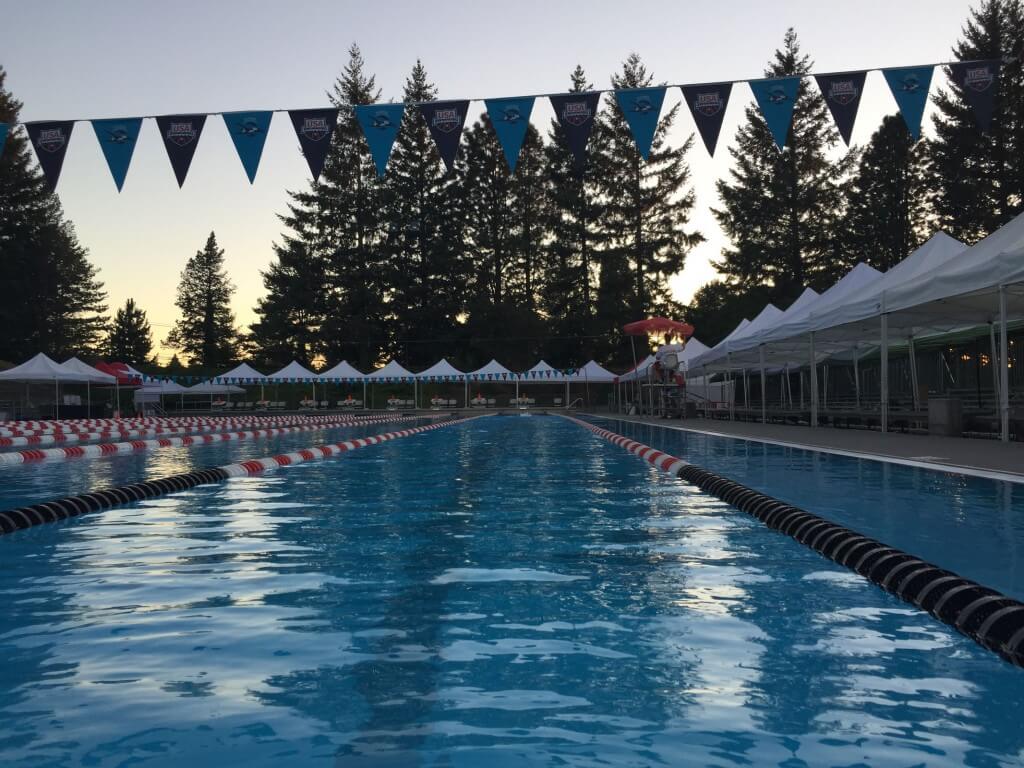
By Alice Reeves-Turner, Swimming World College Intern.
There comes a day in every swimmer’s career when they realise it is time to hang up the goggles. This may be for numerous reasons– age, injury, lack of time for such a demanding sport or just simply falling out of love with swimming. Regardless of the reasoning behind the need to stop, there are a multitude of different activities that swimming leads into which can be as enjoyable and rewarding as swimming.
1. Masters
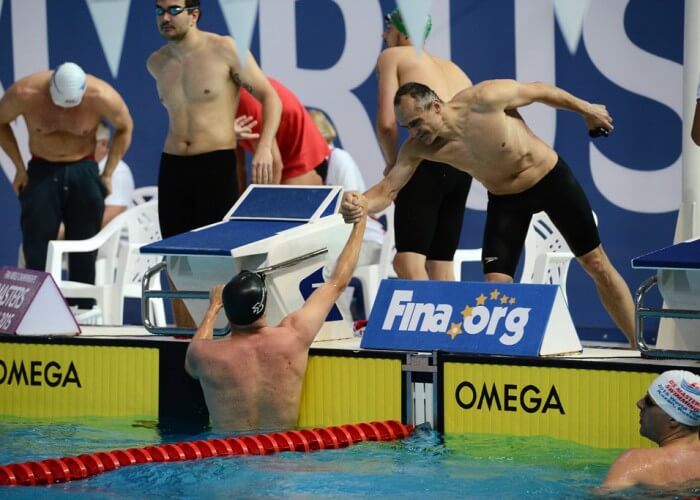
For those swimmers who are reaching the end of their college swimming career and have suddenly realised that they don’t enjoy racing individuals five years younger than them but still want to carry on a sport they love, Masters is the perfect alternative. Age groups begin at 25 years (with 18 to 25-year-olds being able to enter pre-masters), with galas and open meets held regularly (meaning all those taking part are in on the chance of reaching a personal best or even a world record). But be forewarned, these swimmers may be older but they’re not slow. For instance, the women’s 50-meter free 25-29 record held by Annabel Kosten of the Netherlands is only 2.49 seconds off of Ranomi Kromowidjojo‘s world record time of 22.93 seconds.
2. Water Polo
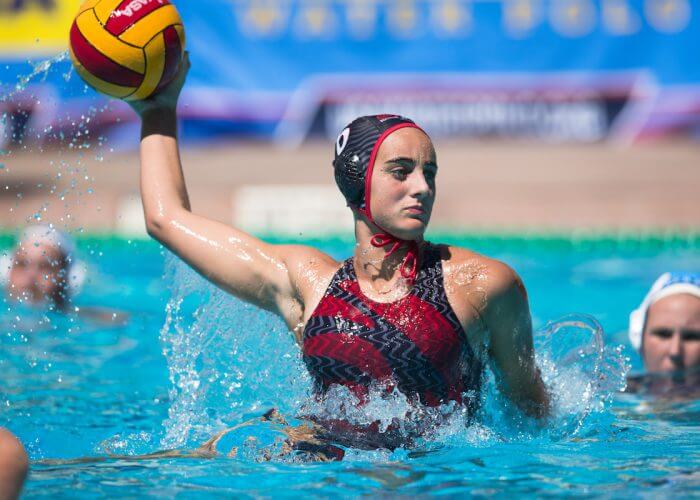
Violent, aggressive and physical. Water polo combines a mixture of the speed and power of swimming with the aggression of American football or rugby, and is the perfect sport for those swimmers who are bored of staring at the black lines on the bottom of the pool, but still hold their love of the water. Played in teams of seven, with games lasting for around 45 minutes, the game combines speed, skills and a lot of swimming. An outfield player can swim up to two miles per game! Water polo is by no means a game for the faint-hearted, but for a bored swimmer, this game is the perfect step away from swimming.
3. Underwater Hockey (Octopush)
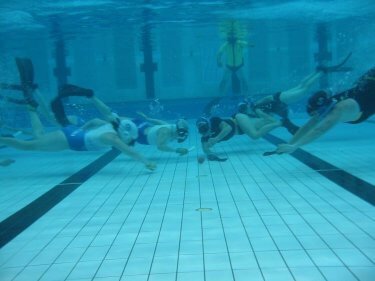
Less well known than the likes of water polo and swimming, underwater hockey is a sport that is currently on the rise in popularity and is designed to be played by any age or gender. The game is played underwater with two teams of six wearing fins and snorkels attempting to pass a puck across the floor to reach goals on opposite ends of the 25 by 15-meter pool. Unlike water polo this sport is a non-contact sport, making it the perfect alternative for those searching for a new water-based sport but not wanting to face the violence of water polo.
4. Triathlon and Pentathlon
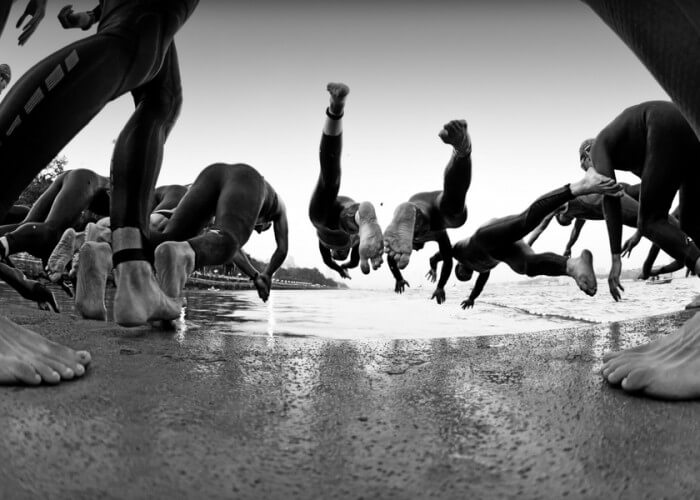
Photo Courtesy: Maria Georgieva
Swimmers not being able to run is a long-held belief that many swimmer stand by, however again and again swimmers are able to switch to triathlon and pentathlon and find massive success. Triathlon, which includes wwimming, cycling and running, and pentathlon, which includes swimming, fencing, riding, running and shooting, are both high level energy events which include a more varied training program than that of a swimmer.
5. Competitive Lifesaving
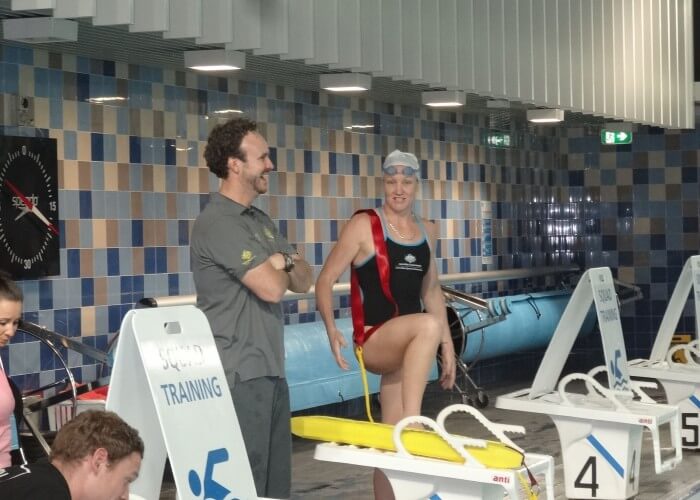
Photo Courtesy: Australian Lifesaving
Originally created to improve the ability and agility of lifeguards in their skills to save lives, lifesaving is an international competitive swimming event which combines swimming with rescue and first aid. Multiple competitions are held throughout the year, finalizing each year with a national championship. In a similar manner to triathlon, lifesaving is the perfect sport for those who want to include different elements into their training.
6. Open Water Swimming
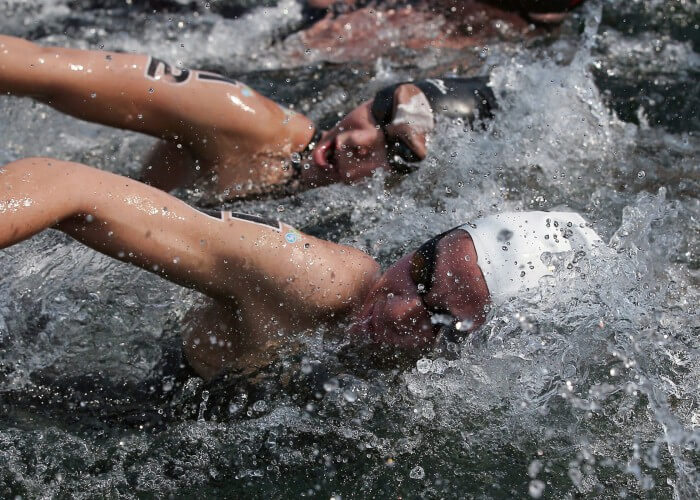
Photo Courtesy: Tom Szczerbowski/USA Today Sports Images
For those who love swimming but want to try something a little different open water is an option to examine. Held in water outside the pool such as oceans, lakes and rivers the sport includes the speed of competitive swimming but with added endurance and strategy; races include 5k, 10k and 25k events. In addition to requiring added stamina, techniques unique to the open water are also included inracing. These include sighting, a technique used to make sure a swimmer hasn’t swum of course, drafting, a technique where one swimmer follows another so closely that water resistance is reduced, and beach starts and exits. Although training for open water inevitably includes in-pool training, those who take part also train in more adventurous environments.
7. Coaching
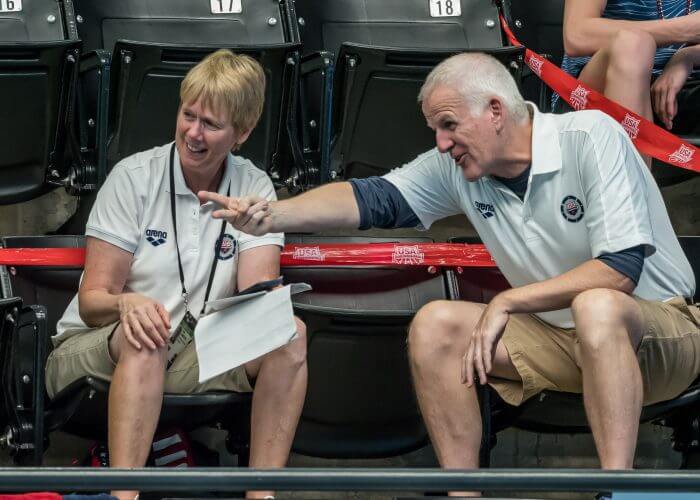
Photo Courtesy: Peter H. Bick
Swimming is a low-impact sport, but this does not mean that swimmers are able to escape from injury completely. Injury leaves many swimmers unable to compete or train in a sport they love well before they are ready to say goodbye. However, there is an alternative that allows ex-swimmers to carry on a career in swimming– coaching. For those who find interest in the technical side of swimming, feel lost without swimming in their lives and want to encourage others to love a sport they themselves love, coaching is a perfect fit.
8. Teaching
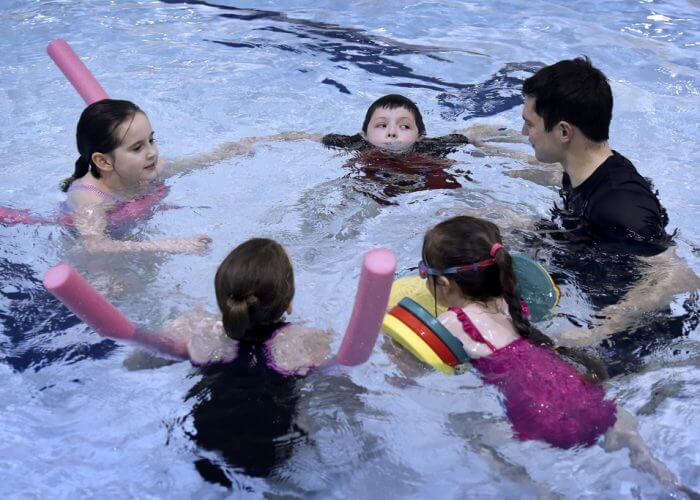
Photo Courtesy: Straight2Swimming
In a similar manner to coaching, swim teaching allows swimmers to give back to a sport they love. Unlike coaching, where a coach focuses on small technicalities within strokes, a teacher is often working from scratch to give children (and adults!) the life-saving skill of swimming. The work can be rewarding and maybe a bit frustrating for the recently-retired swimmer.
9. Lifeguarding
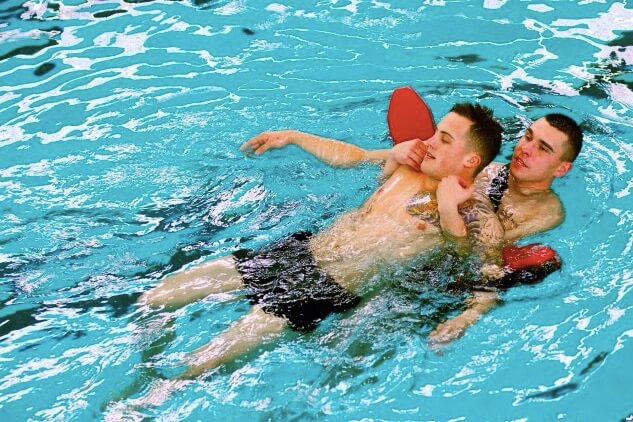
Photo Courtesy: Sgt. Zachary Gardner
The unnoticed presence of the poolside, lifeguards provide support to the competitive swimmer in a multitude of ways, whether this be through setting up for meets and training sessions or performing the very occasional rescue. Although less involved with the swimmer than a coach or teacher, lifeguarding provides a fitness element due to the vigorous training lifeguards are required to go through.
10. Any sport!

Photo Courtesy: Jean-Yves Ahern/USA Today Sports Images
Given the merits of the discipline, etiquette and overall fitness that the meticulous training of swimming provides, it is easy for a swimmer to slip into, not only any sport, but into a multitude of activities outside of sport. This means that after hanging up their goggles a swimmer will find it of great ease – not only to keep up their fitness – but also to excel in life. Swimming teaches a multitude of life lessons, most of which no swimmer realizes they are learning in the thick of it!
All commentaries are the opinion of the author and do not necessarily reflect the views of Swimming World Magazine nor its staff.




huh? Swimming Careers end?
Freediving
Rhyann Lowrey
I don’t agree with the competitive lifeguarding. Pool swimmers are ruining the lifestyle of the true waterman. As someone who literally grew up in saltwater, there is much more to the ocean than being fast. I have seen tons of terrible lifeguards who are pool swimmers. In addition pool swimmers aren’t as dedicated to the job as real watermen and waterwomen. They usually quit the job when they finish college unlike the true lifers. They simply prevent actual sea creatures from getting jobs who intend to stay for life, just because they can swim fast. I hope lifeguard agencies start to address this problem by adding true rough surf condition testing to weed out those that can’t hack the sea.
In closing, if you don’t hit water before or after your shift is over, have never done a pitch black night surfing session, you are not a true WATERMAN or WATERWOMAN.
Officiating
Amy Keech
Hi Coach Kate!!